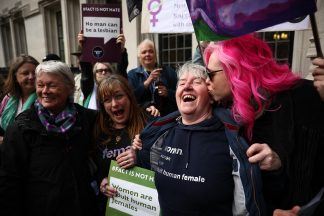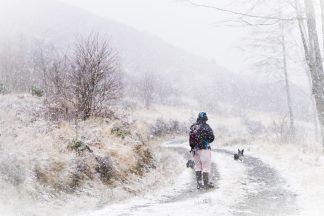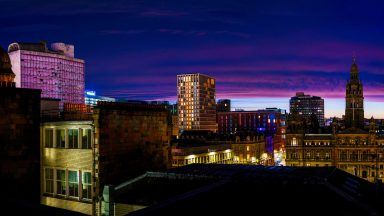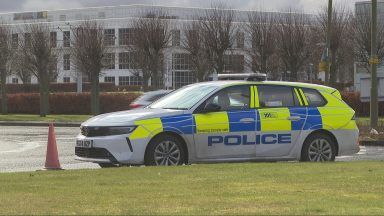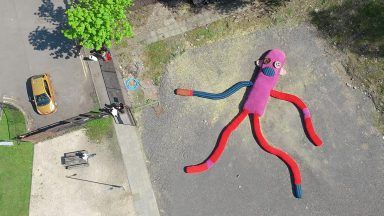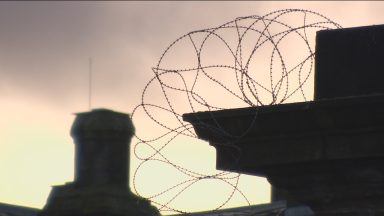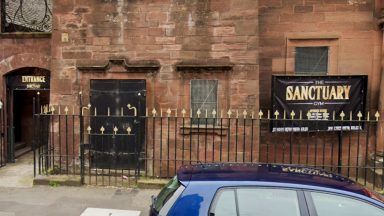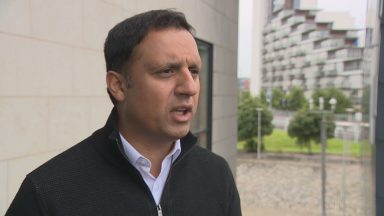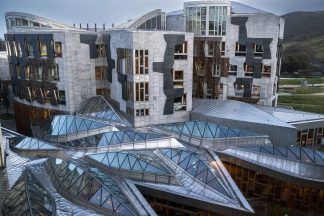The UK Supreme Court ruled on Wednesday that the legal definition of a woman refers to “biological women and sex”.
STV News has asked a Scottish employment and equality law expert about what the ruling means for people, employers and public bodies.
On Wednesday, the campaign group For Women Scotland won a legal challenge against the Scottish Government.
The unanimous landmark judgement determined that the terms “woman” and “sex” in the 2010 Equality Act refer to biological women and sex.
This means it does not extend to a trans woman with a gender recognition certificate (GRC).
“The case made it really clear what we mean by sex, but what it hasn’t done is explore further how that clash of rights might happen if we see people raising trans discrimination complaints. There’s much more to come”
Elouisa Crichton
The ruling has raised questions, including: Can trans women be legally excluded from women’s groups? How can businesses or public services enforce the protection of single-sex spaces? Could a trans person face prosecution if they entered a single-sex space for the opposite sex? Do places have to provide single-sex toilets and changing rooms? What’s in place to protect trans people from discrimination?
Elouisa Crichton, partner with Dentons’ People Reward and Mobility practice in Glasgow, has given STV News her answers.
Q: Could a formal women’s sport group now legally exclude a trans woman without consequences?
A: “There is scope for that.
“If it’s set up to allow only people who are female, which means female at birth, they could do that.
“An interesting question arises when you think about whether they would have to include a trans male within that group – who was born female and would have that classification. These are the types of questions we expect to see more guidance on going forward to explain what it means in practice.”
Q: Are single-sex group organisers allowed to investigate or request proof if they’re unsure of someone’s biological gender? How can they enforce the protection of single-sex spaces?
A: “That’s a really good question and one that’s going to be difficult in practice. There are limits on whether you can ask someone for a Gender Recognition Certificate (GRC) because they are confidential documents.
“But for the purpose of this ruling it seems having a GRC or not isn’t the key point. The key issue is what your sex from birth was. And while you might be able to make inquiries, I can imagine that’s the area that will be fraught with legal difficulties, and you wouldn’t know when to make those inquiries and of whom you should be asking.
“In practice, that’s an area that’s going to be very difficult to enforce those rules if what you’re doing is having to investigate someone’s history.”
Q: Could a trans person face prosecution if they entered a single-sex space for the opposite sex?
A: “It’s interesting because normally when we’re looking at entitlements, it’s about the service provider enforcing that.
“That’s an area where I wonder if we will see some challenges if people are using spaces they know that they shouldn’t under the law.
“I expect that’s a much more complex area that will need a lot of thought put into it in terms of who you’re enforcing those rights against – whether it’s the individual using the space they’re not meant to use or whether it’s the person who owns and operates that space.”
Q: Do places have to provide single-sex toilets and changing rooms?
A: “Importantly, employers and service providers don’t actually have to provide single sex spaces at all. It’s just customary that we do that for certain facilities.
“We might see a bigger shake-up in how we set up changing facilities and toilet facilities to provide spaces and open spaces that might be split on gender lines like they are now.”
Q: When does that cross the line from protecting women’s spaces to trans discrimination? And is there anything in place to determine and uphold that line?
A: “The Equality Act has been repeatedly tested when there’s a conflict in competing rights.
“We know that trans people still have rights – that means they’re not to be discriminated against on the grounds of their trans status, and they have rights not to be harassed. The judgment was really clear that those rights do remain.
“We also now know there’s clarity that sex means sex from birth rather than the sex you live by. I can see exactly that clash where trans people might say, ‘I’m not being allowed to exercise my rights in the way that I want because of the way my gender and sex have been identified in the Equality Act.
“I expect we will see cases on that and updated guidance from the Equality Commission.”
Q: Where are trans people supposed to go if they’re not allowed in the changing room or bathroom of their gender identity? Is there going to be a cost associated with creating a third space?
A: “For now, we’ve got clarity on the Equality Act as to what your sex means and how it should be defined, but when it comes to these real-life scenarios we’re going to have some problems.
“If there are facilities to create the extra third spaces, that might work for some people, but the way the case has just come out, we’re still talking about there being two sexes and using either male or female facilities that accords with your birth gender.
“For many people, that might not feel comfortable or like the right choice. So we’re probably going to be looking for these alternative solutions of third spaces or gender-neutral facilities.
“We’ll often already have accessible or disabled spaces but that’s not necessarily the right choice to say trans people should be using accessible or disabled facilities.
“You might face a problem where law says people should technically use the facilities that match their birth gender, but that might not be suitable in practice.”
Q: Do you think creating a third space would essentially force people to out themselves by using those facilities – thereby creating discrimination concerns?
A: “We could see a general re-think of how we design our spaces whether that’s changing rooms, bathrooms, or other facilities that people use and are commonly split on a male-female divide.
“We might see people thinking more carefully about whether or not that’s required and if it is, whether they should have an additional space to accommodate the ruling and the implications it might have to keep everyone comfortable.
“However, the creation of a third space effectively suggests if you’re trans, you don’t fit into either space and that might not be the experience people want to have.
“And we have a challenge there – we have competing rights and two groups with really strong views. Third spaces might seem like it fixes the problem for some people, but I suspect there will still be challenges there from people who feel entitled to use one or the other.
“That challenge won’t be fully resolved by creating a third space – it might help, but it doesn’t resolve it.”
Q: What happens if a gym, for example, chooses to allow trans women in single-sex spaces – are they opening themselves up to legal action?
A: “Yes, they could be from other people who are using that space.
“If they exclude trans women from a female space, that would currently be permissible under the law. If they exclude trans males, then potentially that would not be permissible.
“It’s these challenges we’re going to see explored further. The case made it really clear what we mean by sex, but what it hasn’t done is explore further how that clash of rights might happen if we see people raising trans discrimination complaints. There’s much more to come.”
Follow STV News on WhatsApp
Scan the QR code on your mobile device for all the latest news from around the country


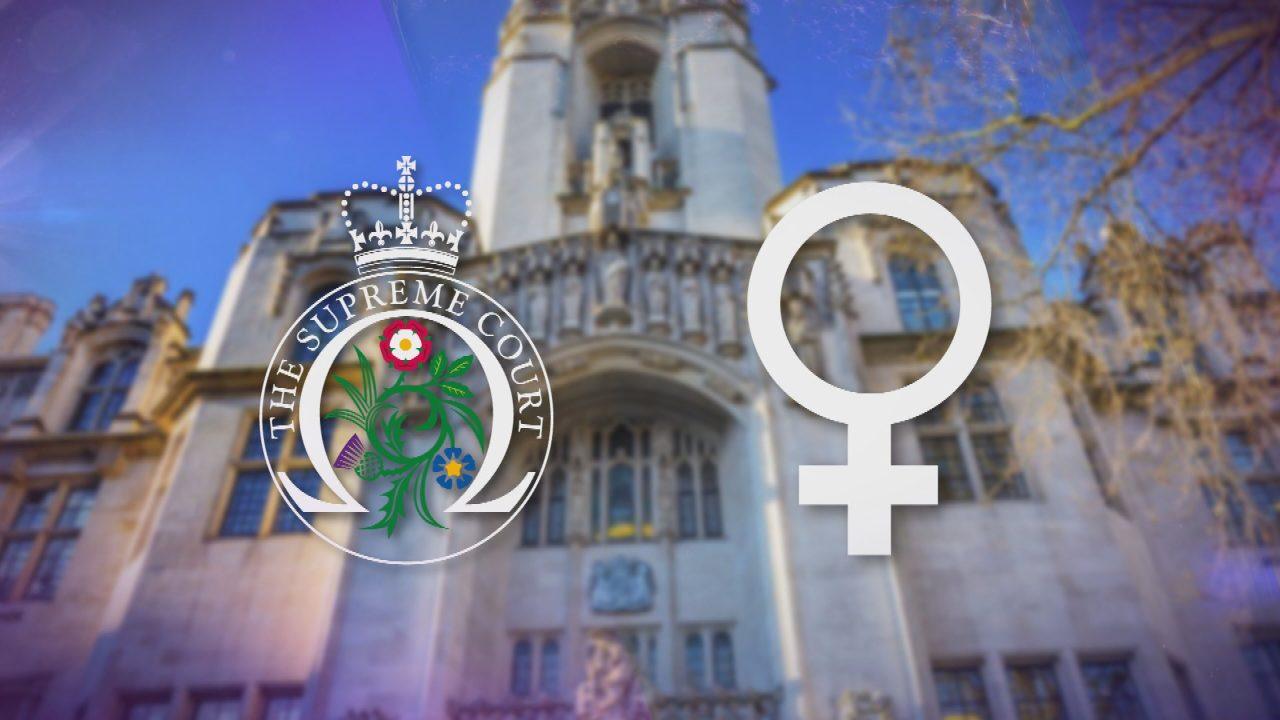 STV News
STV News